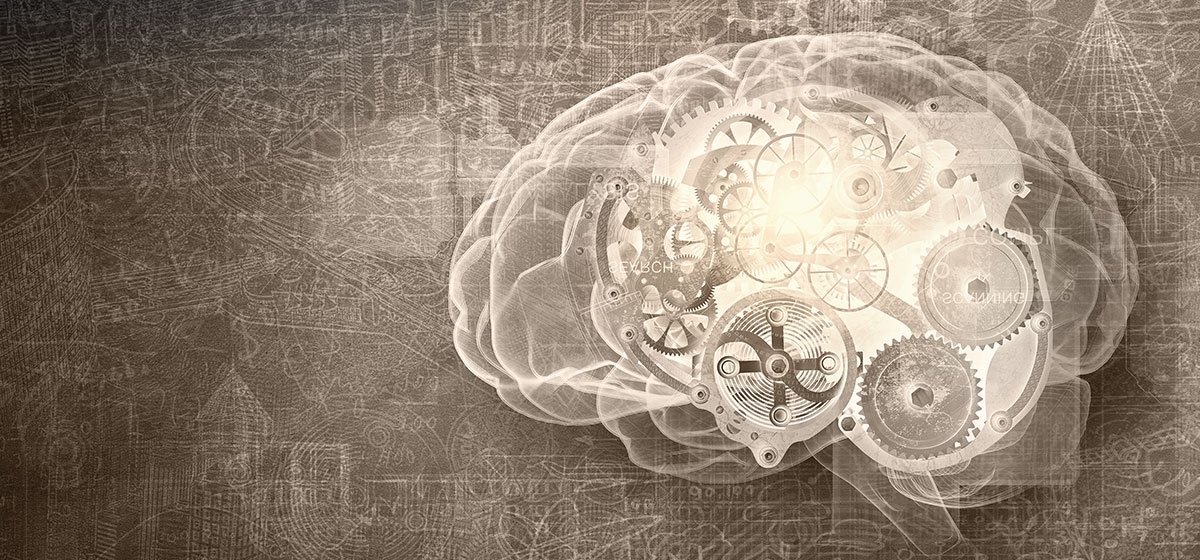Saving the Aging Brain

Think of all the products and promises for sale claiming to improve brain health. Mental-fitness games offer a gymnasium for the brain while one-a-day pills pledge a mental fountain of youth.
Regardless of these claims, there may be no big secret to keeping the brain healthy and maintaining cognitive function. Rather, practicing all the components of a healthy lifestyle may provide the best approach to brain health, especially as the birthdays pile up.
Fitness for the body—and the brain
So what is the best type of exercise for the brain? As it turns out, good old-fashioned physical activity that gets the body moving and the heart beating is of great benefit to the brain as well as the body.
As to why this is physiologically, a single answer may never emerge. However, we know that exercise boosts blood flow to the brain, ferrying nutrients, oxygen, and glucose.
Dr. Kirk Erickson, professor of psychology at the University of Pittsburgh Dietrich School of Arts and Sciences, has long studied the relationship between exercise and brain health. In his belief, the benefits of exercise are so diverse that we may never pinpoint all of the physiological processes in play. “Part of the reason why I believe that exercise is so robust and so effective is that there isn’t one particular mechanism,” Erickson says. “Basically, exercise affects every organ system in the body. It affects so many different molecular and cellular pathways that we’re never going to find just the one particular pathway by which exercise is influencing.”
Erickson led a 2011 year-long study looking at exercise and brain function in physically inactive adults. The study participants, who ranged from ages 60 to 80, performed monitored brisk walking three days a week for 30 to 45 minutes to achieve moderate-intensity activity. Remarkably, it was enough to produce a measurable increase in both brain volume and cognitive functioning.
The hippocampus—a part of the brain associated with memory—increased in size among the participants, the researchers observed during the study, which correlated with participants’ improved memory-test performance. The study revealed the hippocampus’s plasticity in older adults and that non-pharmacological treatment could change hippocampal structure.
While the exercise–cognition relationship has lately received broad attention among scientific circles, its effects have long been documented anecdotally. Charles Dickens reported taking a walk to boost creativity. Even further back, Aristotle regularly taught and philosophized on the move.
Erickson reminds that at least 150 minutes per week of moderate to vigorous exercise has become an increasingly popular recommendation. While going beyond the minimum minutes is better, he says, the benefits don’t start at 150; even 15 minutes is better than zero. He’s currently conducting a study comparing 150 minutes of exercise to 225 minutes of weekly exercise among participants to better understand exercise dosage and benefits.
“[Exercise] is certainly one of the most promising approaches that we have to influence the brain and cognition throughout the lifespan, especially in older adults,” Erickson says. “It doesn’t mean that it’s a magic bullet. It doesn’t mean that it’s going to prevent dementia for everybody,” he warns, however.
As far as playing brain-training games and completing Sudoku puzzles for mental fitness, Erickson says that evidence of their effectiveness has been mixed, with some studies showing positive results but others failing to replicate those results.
Don’t let the brain retire
Use it or lose it is age-old advice for old age. When retirement finally comes around, don’t be caught wondering how to spend all that time. As the years go on, a stagnant retirement can take a cognitive toll—but only if you let it, says St. Clair Hospital’s Dr. Mario Fatigati, who practices general internal medicine and specializes in geriatrics.
Fatigati has seen successful retirees volunteer, be mentors or work part-time. “You have to have a little bit of interest or passion for whatever it is you’re going to do,” he says. So if crossword puzzles aren’t your forte, don’t slog through them for the sake of mental exertion. Retirement offers no better time to do what you love, but choose something mentally stimulating.
Family members and friends can be the most privy to signs of aging and cognitive decline. A familiar case, Fatigati says, goes something like this: Dad was a banker who handled his bills and investments into retirement while playing golf every week. But now, Dad quit doing the bills; he doesn’t play golf anymore.
Such a scenario exemplifies gradual cognitive descent and disengagement. With age, communication between neurons can be reduced in certain regions of the brain. Slowing down doesn’t necessarily indicate dementia, Fatigati says, but failing to subject the brain to mental stimulation and use of executive function won’t help.
Family can also be the first to pick up on something more serious. “Usually what happens when somebody has a cognitive disorder that is not normal aging, family members or close friends see it right away,” Fatigati says. Forgetting what day it is or grappling to find the right word during conversation can be part of normal aging. Compare that to forgetting the season or struggling to follow basic conversation—possible signs of dementia. Dementia is not a specific disease but rather includes a group of symptoms such as memory problems and impaired social and language skills that can affect daily functioning.
When neurons lose function
Mild declines in the ability to learn and to retain information are a normal part of brain aging, says Dr. Carol Schramke, director of behavioral neurology in the department of neurology at Allegheny General Hospital. The brain tends to atrophy and shrink with age, she adds.
Neurodegenerative diseases occur when the brain’s neurons lose function over time and ultimately die. Their emergence is not part of normal aging. Many such diseases, like Alzheimer’s disease, are genetically influenced.
Lifetime risk of developing Alzheimer’s disease varies depending on age. By age 45, the risk of developing the disease at some point in your life is estimated at 10 or 15 percent.
That risk doubles if a first-degree relative—a parent or sibling—develops the disease, Schramke says.
Genetics can influence both neurodegenerative disease onset and more mild forms of cognitive decline. However, it would be wrong to surrender to genetic fate even if predisposed to a neurodegenerative disease that causes cognitive impairment. “Genetics is important but certainly not the whole story,” Schramke says. “Genetics loads the gun, but then the environment pulls the trigger,” she adds, borrowing a favorite phrase from a colleague, indicating how unhealthy influences—smoking, stress, inactivity, and much more—can provoke disease.
“Genetics loads the gun, but then the environment pulls the trigger.”
—Dr. Carol Schramke
While so many genetic, environmental, and lifestyle health factors are in play as the body and mind age, people who remain active, eat well, and lead generally healthy lives may be less likely to develop impairments such as Alzheimer’s disease and dementia. There’s evidence that people who stay active and regularly stimulate their brains may fare better when facing neurodegenerative disorders and may even delay disease onset. “Certainly we want to do everything that we can to stack the deck in our favor,” Schramke says.
Such universally prescribed health advice should sound familiar. And while we often hear of heart-healthy diets and habits, those same recommendations may equally apply to brain health—along with their inverse. “The same things that are bad for your heart, they’re probably bad for your brain too,” Schramke says.
Avoiding concussions and physical stress on the brain may also reduce the risk of cognitive decline associated with aging. There is compelling research, Schramke notes, suggesting that more serious head injuries augment the risk of dementia development later in life. Multiple concussions, or even subjecting the brain to repetitive acceleration–deceleration injuries without concussion, such as sudden braking, may also increase dementia risk.
In the end, the persistence of aging often prevails—that is, healthier people live longer, but living longer increases the likelihood of developing dementia and cognitive decline.
It isn’t uncommon for St. Clair’s Fatigati to hear older patients’ stories of frustration—of forgetting names, being unable to recall places, losing their grasp recalling all of life’s little details. In many cases, such patients are simply experiencing benign senescent forgetfulness, the mild memory defect that comes with age.
Sometimes patients lament that they just aren’t their former selves. But Fatigati reminds: “None of us will be.”




